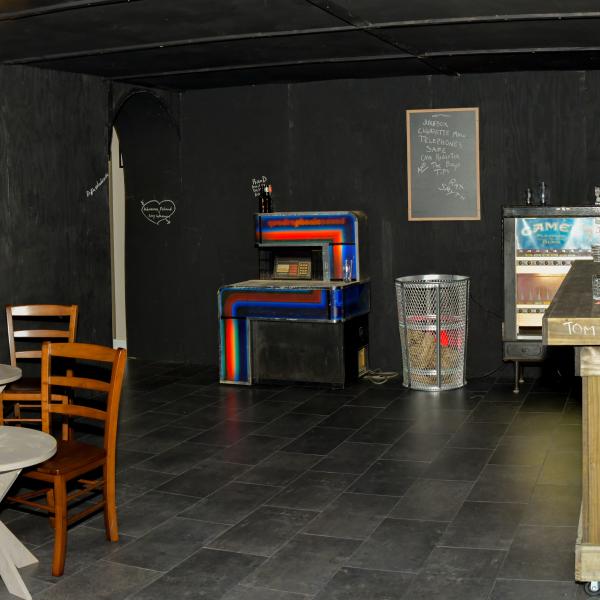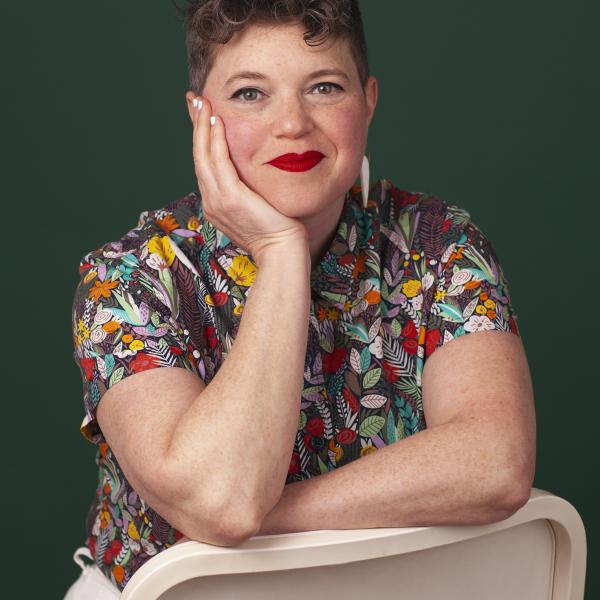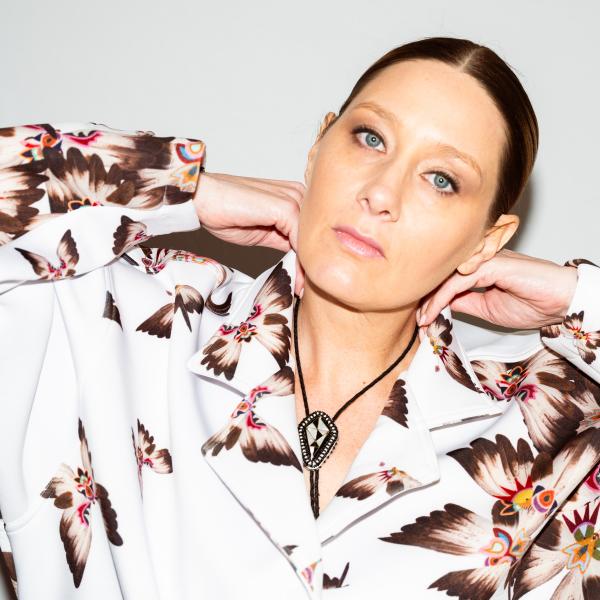Healing, Bridging, Thriving: A Reflection by CAIR Lab
Arts and culture enrich our lives, our communities, and our nation. In this pivotal moment in our history, there is a growing recognition that the arts reveal new ideas, unlock opportunities, and help us confront the many challenges before us. On January 30, 2024, the White House Domestic Policy Council and National Endowment for the Arts (NEA) co-hosted Healing, Bridging, Thriving: A Summit on Arts and Culture in our Communities, a first-of-its-kind convening to share insights and explore opportunities for arts organizations and artists to contribute to the health and well-being of individuals and communities, invigorate physical spaces, fuel democracy, and foster equitable outcomes. In this blog series, you’ll hear from the many diverse perspectives represented at the event—including government officials, policymakers, artists, advocates, academics, and arts leaders—as they share what ideas and inspiration they took from the experience, and how they’re working to advance a broader understanding of how arts and culture can contribute to other fields and unlock new opportunities for artists.

CAIR Lab: Amanda Lovelee, Mallory Rukhsana Nezam, Johanna K. Taylor. Photo courtesy of CAIR Lab
Dear Readers*,
You are cordially invited to join us in co-building the field of cross-sector practice. Our main course is collaboration with a side of courage. Appetizers include previous case studies & toolkits from all around the country. CAIR Lab is excited to be seated alongside you at this table that unites our communities across sectors in building and strengthening our ecosystem.
A day before the Healing, Bridging, Thriving Summit, CAIR Lab brought together government officials, artists who’ve been in residence in government, cultural policy consultants, nonprofit leaders, and arts agency executives for a caucus on artists-in-residence in government. The discussion made clear that people from various sectors are enthusiastic about how artists-in-residence in government programs can help them better connect to their communities and the people they serve, especially those who have been marginalized, and are interested in applying more courageous creativity to addressing the major challenges facing our world. Ultimately, our caucus experience illuminated the fact that throughout the country, much of the groundwork is already being laid to create interest and buy-in for these programs, but that the field still needs technical assistance to set up, budget for, build, manage and evaluate these programs. Furthermore, many practitioners are craving spaces where they can connect with others who are also eager to build collaborations and residencies; they want a network of colleagues around the country with whom they can talk shop—perhaps over a fresh bowl of pasta?
The best conversations happen over a meal. Because this work can’t thrive at disconnected tables, we need one long table to launch our collective dinner party before the food gets cold. Inspired by this map of leadership roles in pursuing social change, we identified some of the ways in which the Summit speakers are advancing many different approaches involved in moving our work forward. The foundational roles that resonated with us that we chose to invite to our dinner party are the champion, the visionary, the experimenter, and the steward. As you read, think about your role & gifts as we gather around the table together.
The Champion: Mayor Michelle Wu
Mayor Wu enthusiastically advocated for the impacts from the City of Boston’s deep embedded relationship with the arts as part of everyday work in government. Artists have long collaborated with the City through the Boston Artists-in-Residence (AIR) Program, which has been operating since 2015. Mayor Wu spoke with passion about the AIR Program which is now established in the City’s annual budget. She called out two artists directly for the work they are doing to expand city capacity: Heloiza Barbosa who is bringing city data to life through stories of the people behind the statistics; and Ashton Lites who has been working with the Parks & Recreation Department to consider if dance was as easily accessible as basketball courts and other parks resources. These artists are making Boston residents feel seen and valued to build belonging in their communities.
We invite you to be inspired by leaders like Mayor Wu in integrating the arts as an essential partner in every aspect of government work.
The Visionary: U.S. Surgeon General Vivek Murthy
In a conversation with NEA Chair Jackson, U.S. Surgeon General Vivek Murthy shared inspirational reflections on how we need the arts to “bring people together with a positive, joyful purpose.” Today, deep loneliness and social isolation are tied to negative health outcomes for many Americans in part due to our fractured social infrastructure. For this dreamer who is expanding our understanding of healthcare, we can all be healers and sources of connection in our communities. The arts are vital in this because they unite people to feel a range of emptions, and “feeling joy is good for your health…the arts are a powerful source of joy, of inspiration, and of healing as a result.”
Let’s enact bold visions alongside the Surgeon General to rebuild our social infrastructure with the arts at the heart of our work.
The Steward: Radhika Fox
It is hard to be the person that moves big dreams into action. But we saw action-oriented stewardship being modeled on the Summit stage when Radhika Fox, in her former role as Assistant Administrator of the U.S. Environmental Protection Agency’s Office of Water, boldly announced the launch of EPA’s first-ever artist-in-residence program at six urban estuary programs across the U.S. Fox said, "I cannot wait to see what creativity, what new solutions, what new ways of thinking and being together will develop through these partnerships." This was not the first time Fox launched a substantial program based on her belief in artists' value advancing the water sector; she also was the force behind the artist-in-residence program at US Water Alliance.
As the Summit sinks in, let's all think about the brave ways that we can move our dreams into action through strategic implementation. We need more exploratory stewards.
The Experimenter: Amanda Phingbodhipakkiya
In the ecosystem of arts and cross-sector work, you can’t underplay the vital role of the artist. Artists are willing and excited to bring different perspectives to the table, to ask deep questions and use their creativity to make something that has never been made before. They are true experimenters, like artist Amanda Phingbodhipakkiya. At the Summit, Phingbodhipakkiya talked about her project “I Still Believe in Our City”, which she created while in residence at the NYC Commission on Human Rights. The project addresses racism head-on with both striking beauty and harsh realism. She used large scale images to make public the racism that the Asian American and Pacific Islander community face in New York City. Art is a powerful tool to talk about difficult concepts, raise up stories, and be a change agent. Phingbodhipakkiya’s experiment made a significant impact in her city and beyond, as her projects have spread globally.
Together we can support more experimenters to do things differently in our sectors, knowing that if we continue to do things the same way we will get the same results.
These roles are only a few seats needed at our long table of cross-sector art and culture work. Where will you sit? What dish will you bring? Will it be a chicken pot pie of transportation policy reform? How about a cornucopia of climate change innovation? What do you want to talk about? There is space for all of our expertise, and the time to start is now. Let’s set the table, make our plan, and get started. You are not alone. Let us help you clarify your visions and create a recipe to move you towards action.
See you at the table.
xoxo
Amanda Lovelee, Mallory Rukhsana Nezam, Johanna K. Taylor
* Especially staff of government and community-based organizations, artists, arts administrators, funders, and anyone else interested in making just and equitable work happen across sectors!




